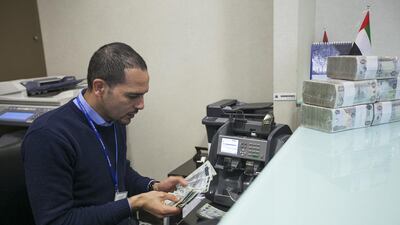The fintech revolution sweeping finance will lessen the profitability of banks in the GCC when it comes to parts of consumer banking – such as money transfers and foreign exchange – but overall it is unlikely to hurt the ability of regional lenders to make money.
“We believe that financial technology could reduce the profitability of some business lines of GCC banks and change the way they operate over time,” S&P Global Ratings said in a report.
“While we don’t expect major disruption of lending activity in the GCC – which remains concentrated on the corporate sector and by individual corporate borrowers – we think that fintech could impinge on retail banking, particularly money transfer and foreign currency exchange.”
__________
Read More:
Abu Dhabi Islamic Bank says its ramping up spending on digital technologies
__________
Distributed ledgers such as blockchain and cryptocurrencies like bitcoin were the main competitors of traditional retail banking payment services provided by banks while peer-to-peer lending and crowdfunding were vying with banks to finance small and medium-sized enterprises, S&P said.
Meanwhile, wealth managers are using robots to help make investment decisions.
The rating agency noted that the GCC banks that it assigns ratings to get about a quarter of their revenues from fees and commissions and foreign exchange gains and, while a big portion that is generated from lending and advisory activities, some of that money comes from transfers and currency
exchange.
Banks in the UAE have not been oblivious to the technological developments transforming the financial services industry and over the past couple of years have been investing heavily in digital and artificial intelligence as consumers increasingly favour online banking over going to a physical branch.
Investments in technology and digitisation are also timely for UAE banks as profitability has been on the wane in the wake of the biggest oil price slump since the 2008 financial crash. Lenders are fortunate that this country has one of the highest smartphone penetration rates in the world.
Emirates NBD, Dubai’s biggest bank by assets, said in July it plans to spend Dh1 billion on technology over the next three years to help reduce costs.
S&P pointed out that the bulk of the banks’ business in the region, lending to corporations, would remain insulated for the time being from fintech as human interaction is still key when it comes to taking out big loans.
“We expect some of GCC banks’ main business lines to remain protected from the fintech revolution,” S&P said.
“These lines include corporate lending, which is one of GCC banks’ main business lines. Corporate lending remains relationship-based and the human added-value remains significant in the GCC, from corporate relationship managers all the way up to decision makers.”

